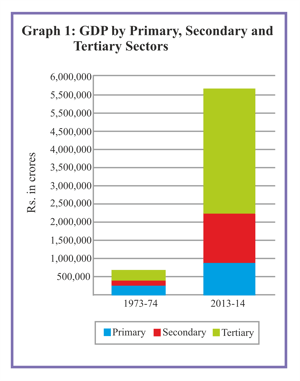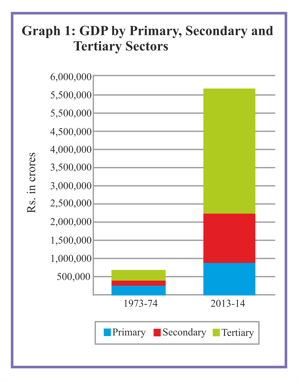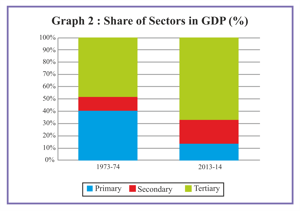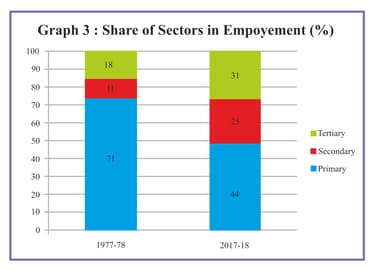Complete the below table to show how sectors are dependent on each other.
EXAMPLE
WHAT DOES THIS SHOW
Imagine what would happen if farmers refuse to sell sugarcane to a particular sugar mill. The mill will have to shut down.
This is an example of the secondary or industrial sector being dependent on the primary.
Imagine what would happen to cotton cultivation if companies decide not to buy from the Indian market and import all cotton they need from other countries. Indian cotton cultivation will become less profitable and the farmers may even go bankrupt. If they cannot quickly switch to other crops, cotton prices will fall.
Farmers buy many goods such as tractors, pumpsets, electricity, pesticides and fertilisers. Imagine what would happen if the price of fertilisers or pumpsets go up. Cost of cultivation of the farmers will rise and their profits will be reduced.
People working in industrial and service sectors need food. Imagine what would happen if there is a strike by transporters, and lorries refuse to take vegetables, milk, etc. from rural areas. Food will become scarce in urban areas whereas farmers will be unable to sell their products.

Important Questions on Sectors of the Indian Economy
Correct and arrange the important aspects for calculating GDP from this Jumble.
To count goods and services, we add the numbers that are produced. We count all those that were produced in the last five years. Since we shouldn’t leave out anything, we add up all these goods and services.

Answer the following questions by looking at the graph:
1. Which was the largest producing sector in ?
2. Which was the largest producing sector in?
3. Can you say which sector has grown the most over forty years?
4. What was the GDP of India in ?
What does the comparison between and show? What conclusions can we draw from the comparison?

Complete the table using the data given in Graphs and answer the question that follow. Ignore if data are not available for some years.


| Share in GDP | ||||
| Share in Employment |
What are the changes that you observe in the primary sector over a span of forty years?
